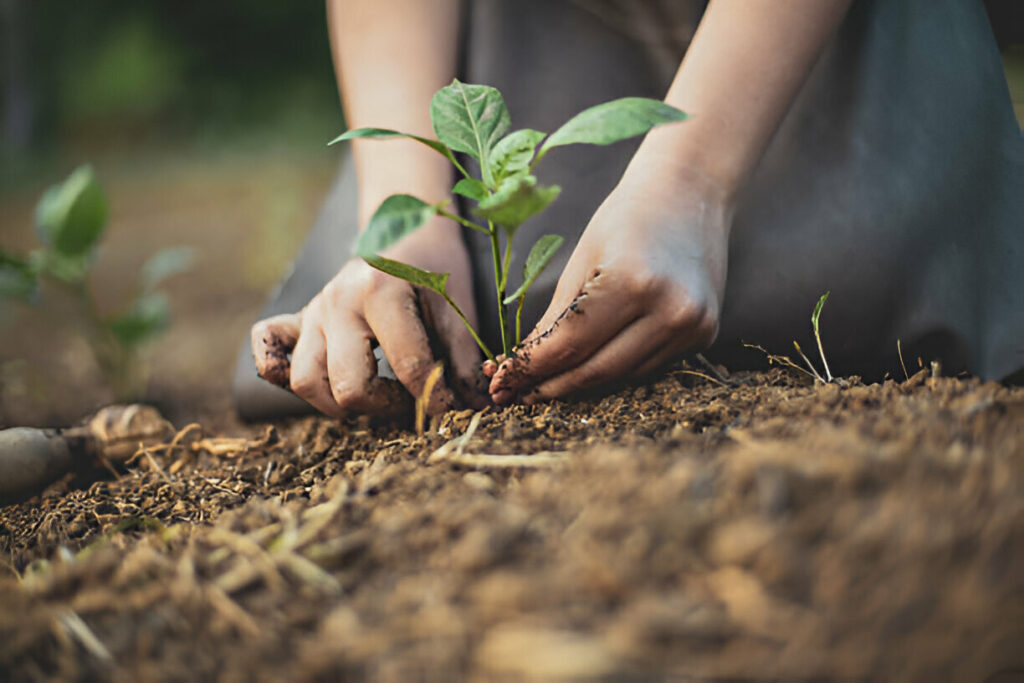Creating a lush, green lawn while being environmentally responsible is easier than you think. Sustainable gardening focuses on minimizing waste, conserving water, and using natural methods to maintain a healthy lawn and garden. By adopting eco-friendly practices, you can reduce your environmental impact while still enjoying a beautiful outdoor space.
The Benefits of Sustainable Gardening
Sustainable gardening not only benefits the environment but also promotes long-term soil health and biodiversity. Here’s why it matters:
- Water Conservation: Reducing water usage helps conserve natural resources and lowers utility bills.
- Soil Health: Natural composting and organic fertilizers improve soil fertility and structure.
- Wildlife Support: Eco-friendly practices create a habitat for beneficial insects, birds, and pollinators.
- Reduced Chemical Use: Avoiding synthetic pesticides and fertilizers prevents pollution and supports healthier ecosystems.
Choosing Native & Drought-Tolerant Plants
One of the easiest ways to create a sustainable lawn is by selecting native plants and drought-resistant grass varieties. These plants are naturally adapted to your climate and require less water, fertilizer, and maintenance. Consider options like:
- Buffalo Grass: A low-water, hardy grass that thrives in various climates.
- Clover Lawns: Helps fix nitrogen in the soil, reducing the need for fertilizer.
- Perennial Wildflowers: Provide natural beauty while attracting pollinators.
- Ornamental Grasses: Require minimal watering and add texture to your landscape.
Smart Watering Techniques
Watering efficiently is key to sustainable gardening. Here’s how to do it right:
- Water Deeply, but Infrequently: Encourages deep root growth, making plants more drought-resistant.
- Use Drip Irrigation or Soaker Hoses: Delivers water directly to the roots, reducing evaporation.
- Harvest Rainwater: Collect rainwater in barrels to use for irrigation.
- Water Early or Late: Watering in the morning or evening minimizes evaporation loss.
Natural Lawn Care & Maintenance
Reduce your dependence on synthetic fertilizers and pesticides by maintaining a healthy lawn naturally:
- Compost & Mulch: Use organic compost to enrich the soil and mulch to retain moisture.
- Mow High: Keeping grass taller (about 3 inches) shades the soil, reducing water loss and weed growth.
- Leave Grass Clippings: Grass clippings act as a natural fertilizer, returning nutrients to the soil.
- Aerate the Soil: Helps improve root growth and enhances water absorption.
Organic Pest & Weed Control
Avoid harmful chemicals by using natural methods to control weeds and pests:
- Companion Planting: Grow plants that repel pests naturally, such as marigolds for aphids.
- Hand Weeding & Mulching: Prevents weeds from taking over without the use of herbicides.
- Encourage Beneficial Insects: Ladybugs, praying mantises, and bees help keep harmful pests in check.
- DIY Natural Pesticides: Use homemade solutions like neem oil or vinegar sprays to deter pests.
Sustainable Landscaping & Hardscaping
Hardscaping elements can reduce water usage and maintenance needs:
- Permeable Paving: Allows rainwater to absorb into the ground instead of creating runoff.
- Gravel & Mulched Pathways: Require less water than traditional lawns and reduce soil erosion.
- Rock Gardens & Xeriscaping: Use drought-tolerant plants and stones to create an eco-friendly landscape.
- Solar-Powered Garden Lights: Reduce energy consumption while enhancing outdoor spaces.
Encouraging Wildlife & Biodiversity
A sustainable lawn supports a diverse ecosystem by providing food and shelter for beneficial creatures:
- Plant Pollinator-Friendly Flowers: Attract bees, butterflies, and hummingbirds.
- Install Birdhouses & Bee Hotels: Encourage beneficial wildlife to thrive in your garden.
- Avoid Chemical Sprays: Protects insects and birds from harmful toxins.
- Create a Small Pond or Water Source: Supports amphibians and beneficial insects like dragonflies.
Reducing Waste & Recycling Garden Materials
Sustainability includes reusing and recycling whenever possible:
- Compost Kitchen & Garden Waste: Turns organic waste into nutrient-rich soil.
- Repurpose Old Materials: Use reclaimed wood for raised beds or garden paths.
- Avoid Plastic Pots: Opt for biodegradable or recycled plant containers.
- Use Fallen Leaves as Mulch: Naturally enriches the soil while reducing waste.
Conclusion
By implementing these sustainable gardening practices, you can create a greener, more eco-friendly lawn that benefits both the environment and your outdoor space. A sustainable garden not only requires less maintenance but also contributes to a healthier planet. Start small, make conscious choices, and enjoy the rewards of a thriving, sustainable lawn and garden!


